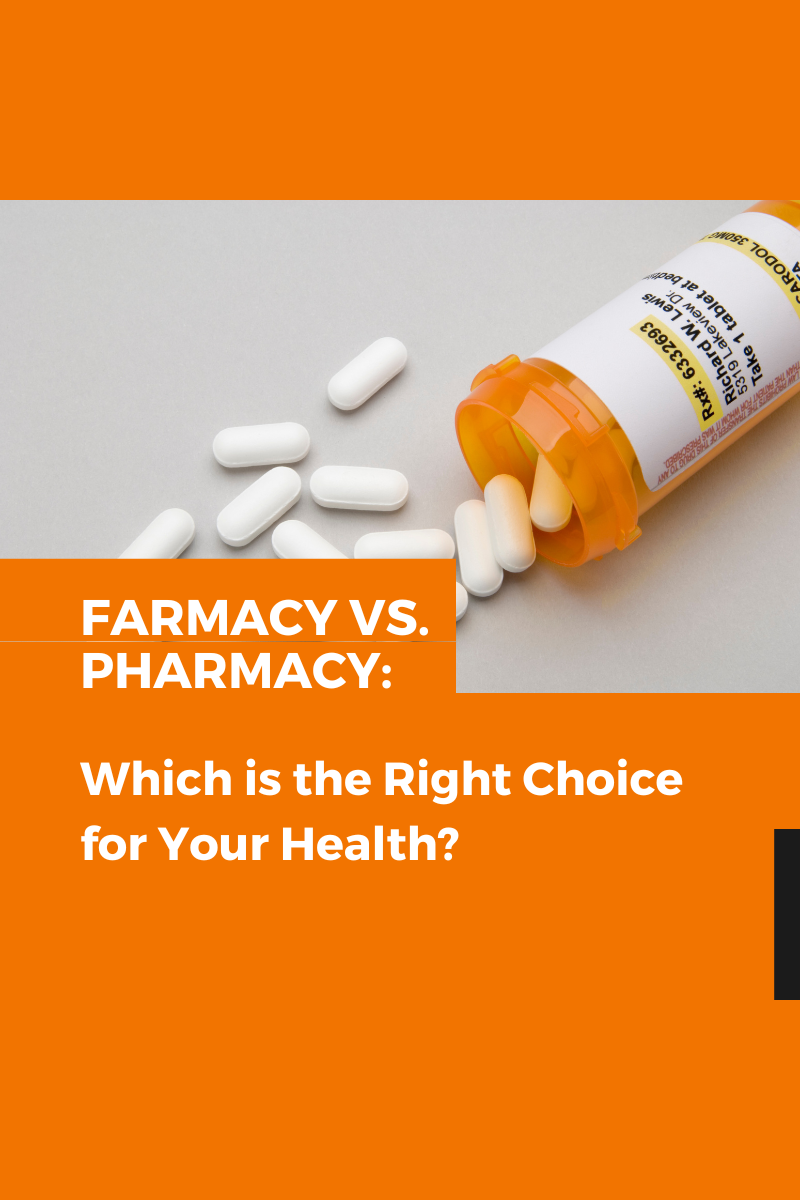
Farmacy vs Pharmacy: Which is the Right Choice for Your Health?
Share
The vast divide between the pharmaceuticals and the “food as medicine” camps is ever apparent. Pharmacies deal with prescriptive drugs and therapies while a “Farmacy” promotes preventative health strategies through alternative medicines, supplementation, and products that advocate healthy dieting.
Technically, a pharmacy is a licensed facility that sells medicinal drugs and employs licensed and specially trained pharmacists as medication experts. A “farmacy” deals with “natural” ingredient sources that may have medicinal or therapeutic benefits unregulated by the FDA.
Up till now, both have been mutually separate with the pharmaceutical industry driving most of the research, development, and production of new dru
gs. Regardless of the FDA’s stamp of approval, it literally defines what is considered “safe”. No wonder, the US pharmaceutical market is the largest in the world, generating about $484.8 billion representing roughly 40% of the $1.2 trillion worldwide. That’s $350 billion more than any other country, a fact largely contributed to by the world's highest pharmaceutical spending per capita.
In short, there’s a ton of money in drugs and US citizens fork out more than anyone. And these companies have a LOT to lose. It’s unsurprising that pharmaceutical companies in the United States spend loads of money advertising their products. It is unclear if these advertising costs directly impact the high drug prices in the U.S. or if the high drug prices are why so much money is available for advertising. Regardless, a review of advertising costs shows that the figures rose from $3.9 billion in 2012 to $6.46 billion in 2018. Infamously, 6 of the top 10 US-based pharma companies are involved in the top 10 most significant lawsuit settlements in the world.
The companies are Pfizer ($2.3 billion in 2009), Johnson & Johnson ($2.2 billion in 2013), Abbott Laboratories ($1.5 billion in 2012), Eli Lilly and Co. ($1.4 billion in 2009), Merck ($950 million in 2011), and Amgen ($762 million in 2007).by Pharmapproach | November 21, 2020
It’s ever more apparent that pressure to produce billion-dollar revenues also influences the type of drugs that are promoted and approved. The pharmaceutical industry often downplays the efficacy of healthy and preventative strategies as not being supported by evidence-based research or through a lack of FDA regulation.
No doubt there are bad operators hawking misleading cures but it's hard to ignore the positive results. There are limitless anecdotal experiences and some preliminary research on many foods and supplements. It makes sense that natural ingredients help maintain a sound mind and body. In my experience, those that invest in their health have fewer problems reducing disease and dysfunction.
Something big pharma industry can’t afford.
